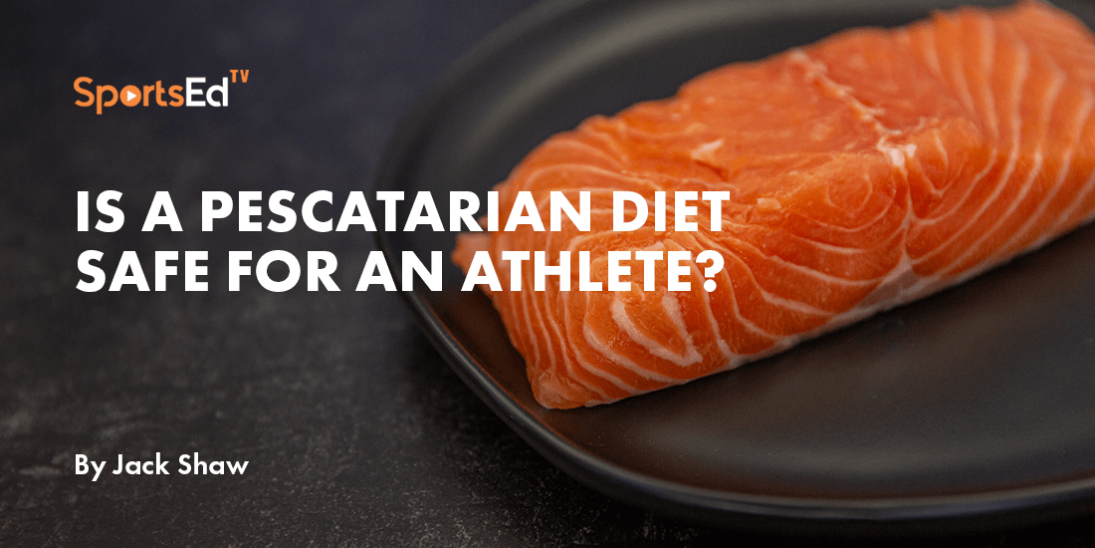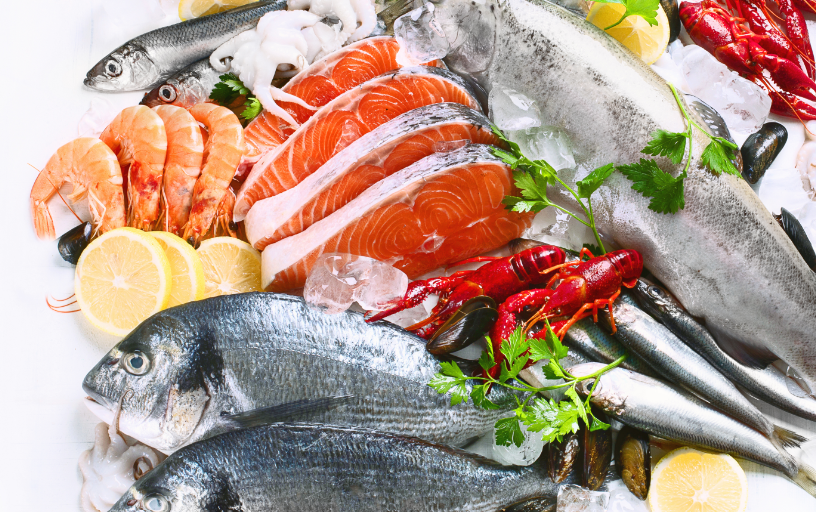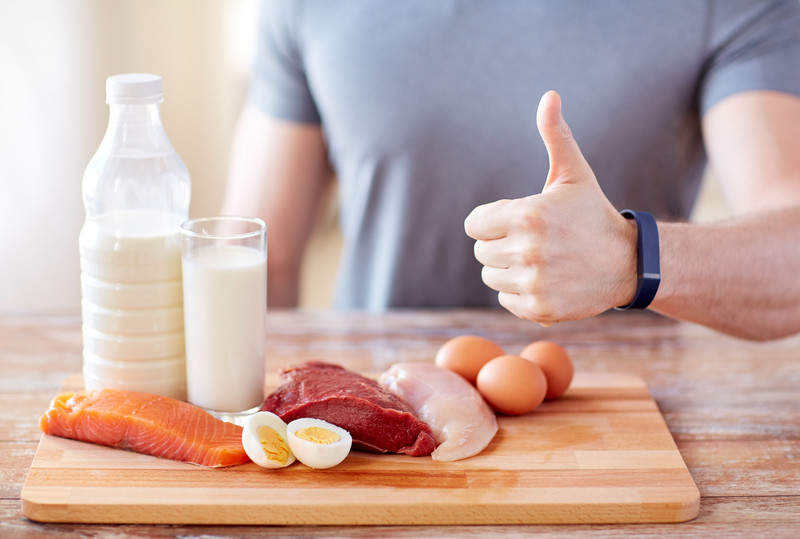Athletic Training, Baseball, Basketball, Cycling, Golf, Gymnastics, Lacrosse, Martial Arts, Nutrition, Physical Education, Pickleball, Running, Skiing, Strength And Conditioning, Swimming, Table Tennis, Taekwondo, Tennis
Welcome and thanks for visiting...

Is a Pescatarian Diet Safe for an Athlete?

An athlete’s diet is just as crucial to their performance as their training, so which food regimen is the best? Some athletes turn to the pescatarian diet for their nutritional needs. With this nutrition plan, athletes eat healthy foods, critical vitamins, and minerals, but is it safe? Here’s a guide on the pescatarian diet for athletes and whether you should follow it for your meals.
What Is the Pescatarian Diet?
The pescatarian diet is a primarily plant-based diet permitting fish and seafood consumption. Consuming eggs and dairy products is optional based on your dietary preferences, so it’s up to athletes and their coaches to decide what’s best for them.
Some athletes choose the pescatarian diet to emphasize healthy living because the diet consists mainly of vegetables, whole grains, and lean meats. Others may start a pescatarian lifestyle due to environmental concerns about beef and poultry. For example, researchers say fisheries produce less carbon per kilo of protein than beef, lamb, and other popular meat sources.
The pescatarian diet is growing worldwide due to its health and environmental benefits. Research shows about 7% of Americans follow a pescatarian diet, with only China and India demonstrating a higher share.
Is the Pescatarian Diet Safe for an Athlete?
The pescatarian diet is safe for athletes because it includes healthy foods and opportunities to meet macronutrient goals. For instance, athletes might focus heavily on protein to keep their bodies strong. Pescatarian meal plans can include shrimp, salmon, tuna, anchovies, and plant-based proteins, such as beans, tofu, and lentils.
While the pescatarian diet is safe, it may only be ideal for specific segments of athletes. For instance, this nutrition plan might not be the best for competition weightlifting because of the high protein and calorie content needed to maintain strength. Achieving a high-calorie, high-protein diet may be easier with other meat-centric nutrition plans. However, those on a pescatarian diet might fare better in other sports.
A 2023 Nutrient study examines how plant-based and omnivorous diets affect athlete performances. The researchers found that athletes on a vegetarian diet consume more calcium and iron and have a reduced saturated fat intake compared to those on an omnivore diet.
These athletes also have higher relative oxygen consumption, meaning their endurance is better than the other competitors. Pescatarian and plant-based diets are more common with runners, swimmers and cyclists than weightlifters.
Pros of the Pescatarian Diet
The pescatarian diet is popular among athletes because it provides a way to eat cleanly and improve health. Here are a few reasons the pescatarian diet benefits athletes.
Reduced Risk of Cancer
One of the chief advantages of the pescatarian diet is a reduced risk of cancer. Eating plant-based foods and fish eliminates your red meat consumption and, thus, the associated risks with beef. With a pescatarian diet, you increase your intake of omega-3 fatty acids, fiber, and other cancer-preventing vitamins and minerals.
A 2022 BMC Medicine study examines the relationship between various diets and common forms of cancer in the United Kingdom. The researchers conclude that people on a vegetarian or pescatarian diet have a lower risk of cancer than those who consume meat.
Improving Heart Health
Additionally, athletes can benefit from a pescatarian diet because it improves their heart health. This meal plan primarily includes unsaturated fats from fish, and you can eat other high-fat foods like nuts, avocados, olive oil, and seeds. Eating foods with unsaturated fats lowers your blood pressure and reduces inflammation, leading to better long-term health outcomes for any athlete.
The pescatarian diet increases your intake of healthy foods while reducing your consumption of other protein sources. If you eliminate red meat, you reduce your risk of heart disease because beef contains unhealthy fats and is typically higher in calories.
Getting Essential Nutrients
The pescatarian diet provides a holistic approach to eating because you get plenty of essential nutrients. For instance, imagine an athlete choosing lobster for their post-training meal. Four ounces of lobster contains 23 grams of protein and just over 100 calories, so it’s an excellent option for athletes looking for high-protein, low-calorie foods. Supplement your meal with vegetables and whole grains for a terrific meal.
Besides protein, you get other crucial vitamins and minerals from the pescatarian diet. A plate of oysters, clams, and mussels provides B12, iron, and zinc to keep your blood and nerve cells healthy.
Staying Lean
The pescatarian diet typically reduces calorie intake because fish, eggs, and plant-based foods have less fat. This meal plan is advantageous for athletes with weight requirements who must stay lean for peak performance. For instance, most tennis players need a slim figure to maintain their agility and speed. A pescatarian diet makes more sense for tennis players than a bulking nutritional plan.
Cons of the Pescatarian Diet
While the pescatarian diet is advantageous for many athletes, it comes with these drawbacks you should consider.
Lacking Red Meat Nutrients
Fish, seafood, and plant-based foods provide most of the nutrients your body needs. However, your diet may need more key vitamins and minerals if you leave red meat and poultry from your diet.
For instance, red meat is an excellent source of heme iron, which differs from the non-heme iron you find in some seafood and plant-based proteins. Your body absorbs heme iron efficiently, making it a terrific option for your diet if you choose to eat beef. Red meat also contains vitamin B12, carnosine, creatine, and other nutrients that support athletic performance.
Mercury Content
Another concern for the pescatarian diet is the mercury content from eating seafood. Most athletes can eat fish and seafood without worrying about mercury, but it’s worth examining before purchasing seafood products. The Centers for Disease Control and Prevention (CDC) says mercury exposure can have adverse health effects like headaches, chest pain, insomnia, and eye irritability.
Your mercury intake will dictate the likelihood of these side effects, so check nutritional labels before consuming seafood. Low-mercury seafood includes salmon, shrimp, oysters, and trout, so prioritize these options. Shark, southern bluefin tuna, and swordfish have high amounts of mercury, making them foods to avoid.
Cost
Fish and seafood are healthy protein options for athletes with a high price tag. Salmon, trout, and shrimp provide terrific nutritional benefits but are often more expensive per pound than chicken, lean beef, and other meat options. Athletes may have difficulty following the pescatarian diet if food options don’t fit into their budget. You can save money at the store by purchasing prepackaged frozen fish instead of fresh seafood and searching for products on sale.
Examining the Pescatarian Diet for Athletes
Athletes need specialized diets to maintain their strength and energy levels during training and competition. Some choose the pescatarian diet for its health benefits, such as keeping the calories low and reducing cancer risk. However, athletes on the pescatarian diet should ensure they’re still getting the nutrients they may miss when excluding poultry and red meat.










